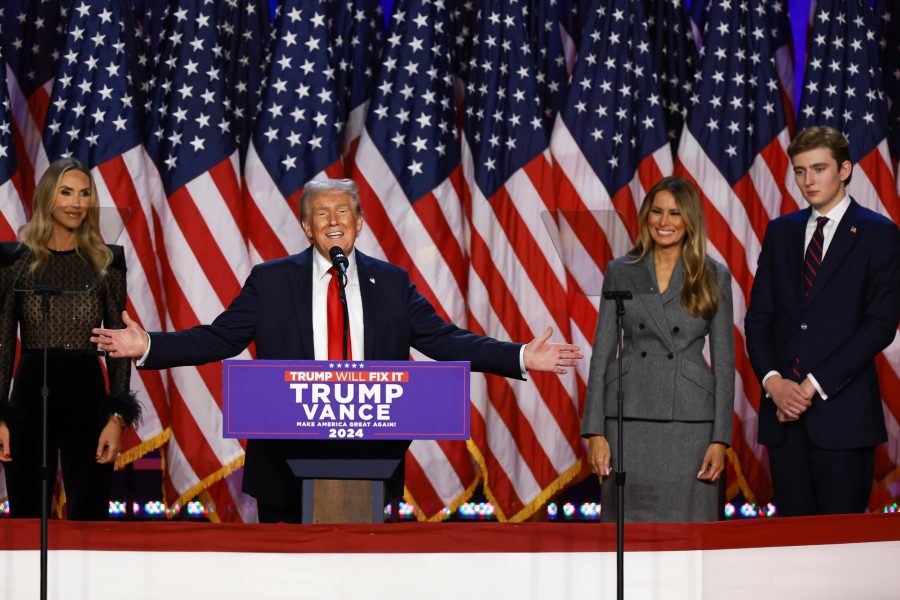In Donald Trump’s win, America will need to tackle some tough questions
As we approached Election Day in the US, it felt like Republican Donald Trump was going to win the election over Democratic vice president Kamala Harris, even if the polls weren’t picking it up. He is now slated to cross 310 electoral votes — higher than his first presidential election victory in 2016 and the most since Barak Obama was re-elected as president in 2012.

The US is a country in which very few votes are up for grabs. About two in three registered voters consider themselves as aligned to a political party according to the Pew Research Center, and the election is decided by a handful of swing states. In the 2020 presidential election, Trump lost the popular vote to Joe Biden by about 4 percentage points, and this time he is poised to win the popular vote by 1 to 2 percentage points over Harris. In other words, what seems like a major electoral shift can literally be caused by taking three percentage points from the Democrat column and adding it to the Republican column.
Popular analysis has characterised the 2024 presidential election as monumental, with an ugly campaign that took conspiratorial and racial overtones in which the candidates engaged in ad hominem attacks. The differences in the focus of the campaigns are clear from exit poll data. According to the NBC News exit poll, 42% of voters named the economy and immigration as their top issues, and, among them, more than 80% voted for Trump and the Republicans. Another 35% named the state of democracy as their top issue, and, among them, more than 80% voted for Harris and the Democrats.
In a country that has demonstrably voted based on the incumbents’ economic performance, and issues of political ideology, Democrats sought to win this election by painting Trump (perhaps legitimately) as an existential threat to American democracy. In contrast, Trump’s support base seems to have focused on more anodyne issues like inflation and immigration. This is perhaps all the more surprising as a number of high-profile Republicans such as former vice president Dick Cheney openly supported Harris.
But the brass tacks of economic perception (according to the exit poll, 45% of voters felt they were worse off today than four years ago, compared to just 24% saying they are better off) meant that Democrats were fighting an uphill battle. Even in India, where we regularly paint our politicians as existential threats, we find basic demands such as welfare delivery and employment dominating voter preferences. The Democrats clearly struggled to find an “everyday issue” with which voters could identify (there is little evidence that the US’s Israel policy, for instance, was a decisive factor across the electorate).
While a detailed demographic and regional analysis will emerge in the days to come, a few things are worth noting regarding polling and electoral performance. First, the polls didn’t miss by much; most aggregators such as Nate Silver’s FiveThirtyEight had Kamala Harris’s lead in the popular vote down to less than a percentage point, meaning that the prediction was within 2 to 3 percentage points of the true value. Second, the bigger problem for the Harris campaign is that this small difference seemed to have applied relatively uniformly across the country. This meant that the states that had been identified as “swing states” such as Michigan, Pennsylvania, and Wisconsin (and to a lesser extent Arizona, Georgia, Nevada, and North Carolina) all swung by a few percentage points to the Republicans as compared to the polls. In this sense, the error was “correlated” across the states. Finally, Harris never had the benefit of building her campaign from scratch, as she had to take over for an underperforming President Joe Biden. Even under these circumstances, where the Democrats seemed very unlikely to even make it much of a contest, Harris expanded the map to a larger set of swing states. It is worth pondering whether any Democrat could have performed as well as her under these circumstances.
The analysis will now shift to what a Trump presidency means for the US and the world. Because he has already served one term, he will have to step down after four years. The administration will change, and the language used by the President will certainly change, but there is little to suggest concrete differences in foreign policy other than the approach to Ukraine and Russia (Trump and his vice president JD Vance are widely seen as critical of the US’s support of Ukraine). The US has proved to be a stable partner with India across both Democratic and Republican governments, and these strategic incentives for the US are unlikely to change. But the consequences for domestic politics may be more severe.
Trump encouraged his supporters to storm the Capitol building in Washington DC when he lost the election in 2020, and made it clear that he would not easily accept the results in 2024 if he lost. The NBC exit poll found that nearly a third of voters did not believe the election would be conducted fairly, and, among them, more than 80% supported Trump. The former president allied with the richest man in the world, Elon Musk, with a newfound calling as a professional troll who even offered money to voters (via a lottery) to sign a petition in swing states. Trump also indirectly threatened who he defined as “internal enemies” in the US .
The founders of the US, notably James Madison in Federalist Paper 51, laid out the importance of the “check and balances” envisioned in American democracy to prevent the concentration of power. What does it mean when the President no longer follows this founding principle — especially when his party may control both chambers of Congress. Can adversaries be punished without due process? Can supporters and business associates exploit State resources? Will Americans continue to trust their institutions? A country that has long prided itself for “exporting” democracy will now have to look inward and tackle these tough questions.
Disclaimer: The copyright of this article belongs to the original author. Reposting this article is solely for the purpose of information dissemination and does not constitute any investment advice. If there is any infringement, please contact us immediately. We will make corrections or deletions as necessary. Thank you.
Title:In Donald Trump’s win, America will need to tackle some tough questions
Url:https://www.investsfocus.com









